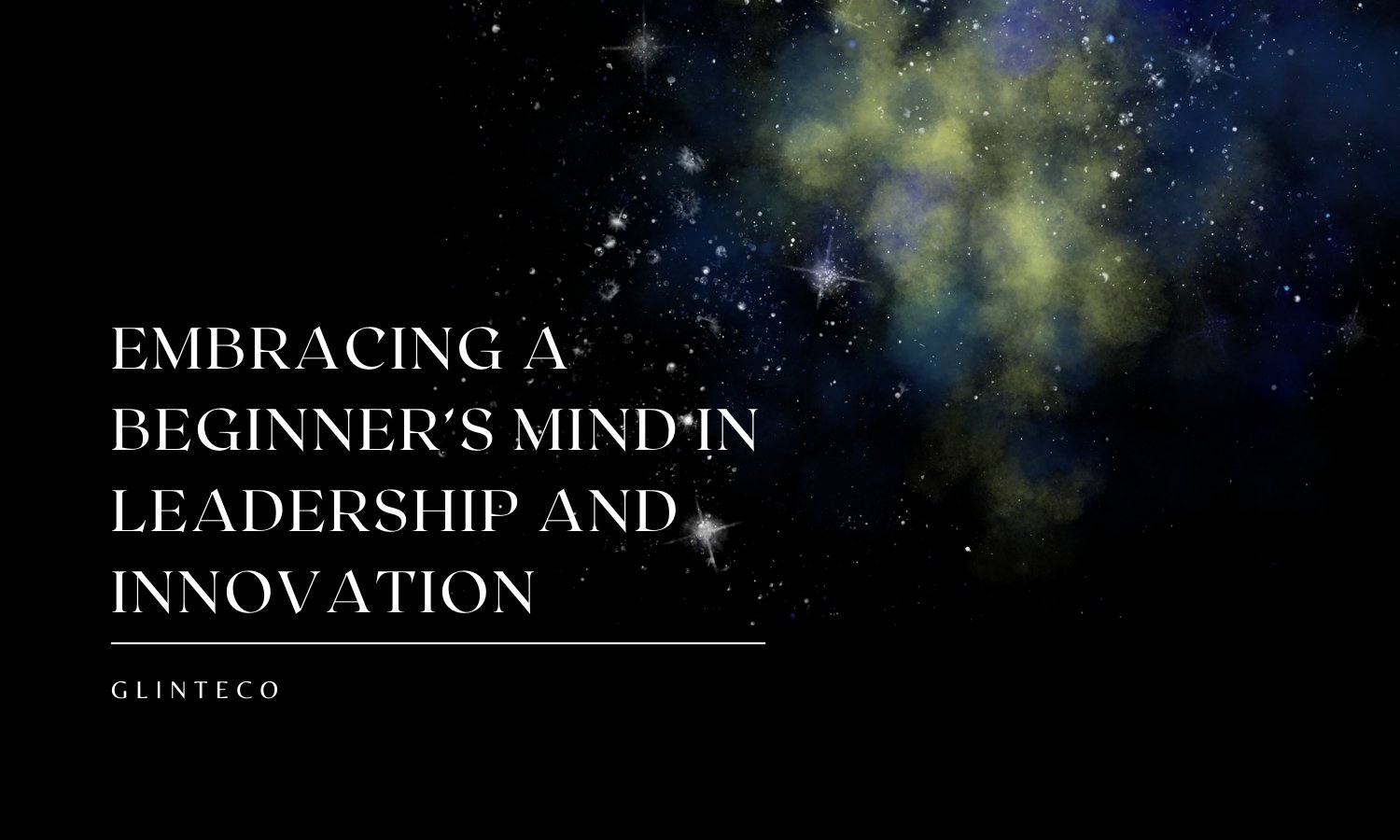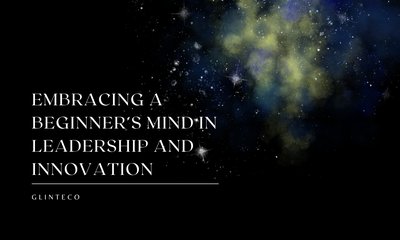Embracing a Beginner’s Mind in Leadership and Innovation
By loriw, at: May 15, 2024, 5:53 p.m.
Estimated Reading Time: __READING_TIME__ minutes


Introduction
The concept of a Beginner’s Mind or Shoshin, has profound implications in leadership and innovation. Stemming from Zen Buddhism, Shoshin emphasizes openness, eagerness, and the absence of preconceptions when learning or approaching any subject. This mindset is about seeing the world anew, as if for the first time, regardless of prior expertise or knowledge.
Steve Jobs, a prominent advocate of this philosophy, encapsulated it in his famous advice: "Stay hungry, stay foolish." By this, he meant maintaining an insatiable curiosity and a willingness to take risks and embrace the unknown, which are essential for innovation. In the context of leadership, adopting a beginner's mind means leaders are not bound by their past successes or established routines. Instead, they are open to exploring new ideas, questioning old assumptions, and thereby fostering a culture of continuous learning and innovation within their organizations.
In practical terms, embracing a beginner’s mind in leadership and innovation involves several key behaviors:
- Encouraging curiosity and continuous learning: Leaders should promote an environment where questioning and learning are valued over simply executing tasks. This could mean providing teams with the time and resources to explore new ideas or technologies.
- Challenging the status quo: Just as Steve Jobs disrupted multiple industries, from personal computers to music and mobile phones, leaders should encourage their teams to rethink existing ways of doing things and explore new approaches that may initially seem foolish or risky.
- Adapting quickly: With a beginner’s mind, leaders are more agile; they can quickly seize opportunities from new trends and technologies, rather than being paralyzed by analysis or tied to outdated methods.
The benefits of this approach are clear. Organizations led by individuals with a beginner’s mind are often more innovative and adaptable, better equipped to navigate the complexities and rapid changes of the modern business landscape. They are places where ideas flourish, and people are motivated by the possibility of what they can learn next rather than just what they already know.
This philosophy not only enriches the individual leader’s capacity for growth but also profoundly impacts the organizational culture, driving it towards continual improvement and creative problem-solving. It’s about staying mentally young, always ready to absorb new information and tackle challenges with fresh eyes and a full heart.
The Value in Leadership
Adopting a beginner's mind in leadership means embracing uncertainty and being open to new ideas. Research from the Harvard Business Review indicates that leaders who adopt a beginner's mindset are 40% more likely to foster innovation in their teams. This mindset allows leaders to:
- Remain flexible, abandoning rigid strategies in favor of innovative solutions.
- Foster continuous learning, taking lessons from both successes and failures.
- Enhance creativity and resilience, making the most out of unpredictable situations.
Clara Shih: A Case Study
Clara Shih, as the CEO of Salesforce AI, truly stands out not just for her professional accomplishments but also for her unique leadership style. She embodies the essence of the beginner's mind, consistently encouraging her team to approach AI with curiosity and openness, essential in the rapidly evolving tech landscape.
Under Clara's guidance, Salesforce has not just integrated AI but has done so with a commendable focus on ethical practices. This is something I deeply admire because it shows a commitment to responsible innovation, ensuring that AI technologies not only advance business capabilities but also uphold high moral standards.
One of the crowning achievements of her tenure is the development of Einstein AI. The platform is a game-changer for customer relationship management (CRM), employing machine learning to provide predictive analytics and natural language processing. This not only enhances how businesses interact with customers but also significantly improves decision-making processes with richer, data-driven insights.
Clara’s initiatives, like Einstein AI, have transformed the way businesses leverage customer data. Her efforts have established benchmarks for integrating advanced technology with a keen sense of ethical responsibility in the business world. I find her vision for AI both inspiring and essential, as it balances technological advancement with a strong ethical framework, making a positive impact on both Salesforce and its myriad of users.
Driving Innovation
A beginner’s mind fuels innovation by:
-
Encouraging experimentation and questioning of the status quo. For example, Google's "20% time" policy allows employees to spend 20% of their time on projects they are passionate about. This approach not only promotes creativity but has also led to significant innovations such as Gmail and Google News. By allowing employees the freedom to explore new ideas without the pressure of immediate results, companies can tap into the untapped potential that might otherwise remain dormant under more rigid structures.
-
Welcoming diverse ideas and perspectives, which can lead to groundbreaking solutions. When people from different backgrounds and with different viewpoints come together, the variety of perspectives can catalyze novel solutions that might not emerge in a more homogenous group. This diversity of thought is crucial in identifying and solving problems in ways that a more uniform group might overlook.
-
Maintaining relevance by adapting quickly to new trends and technologies. Today, technologies and market dynamics evolve rapidly. Organizations with a beginner’s mind are more agile; they remain open to learning and adapting, which is essential for staying relevant. Embracing new trends and technologies not only helps in keeping up with competitors but also often leads to pioneering in uncharted territories.
Challenges and Strategies
While adopting a beginner's mind has numerous benefits, it also comes with challenges like institutional barriers and the need to balance expertise with openness. Leaders can foster this mindset by:
-
Encouraging cross-functional teams and continuous learning.
-
Creating safe spaces for experimentation and rewarding curiosity.
For instance, companies like 3M and Pixar have built cultures that celebrate failure as a stepping stone to innovation.
Conclusion
Adopting a beginner’s mind can truly revolutionize the way leaders and professionals approach their work and life. By embracing this mindset, not only can you transform challenges into opportunities for innovation, but you also open yourself up to continuous growth and creativity. Imagine moving through your professional landscape with the curiosity of a novice, eager and open — this can unlock paths and possibilities that might have been invisible under a more conventional approach. So, as you step forward, carry with you the spirit of a beginner: boundlessly curious and ready to learn, grow, and innovate at every turn.
Further Reading and Resources
- Zen Mind, Beginner's Mind by Shunryu Suzuki
- Creativity, Inc. by Ed Catmull
- Online courses like "Learning How to Learn" on Coursera
Embrace the journey of continuous discovery and see where a beginner’s mind can take you!




